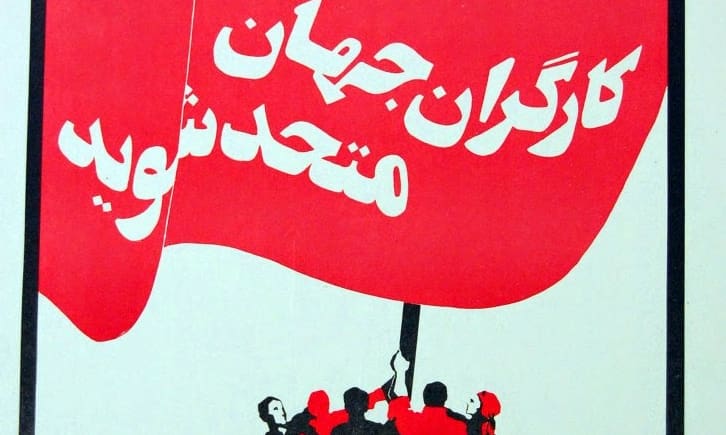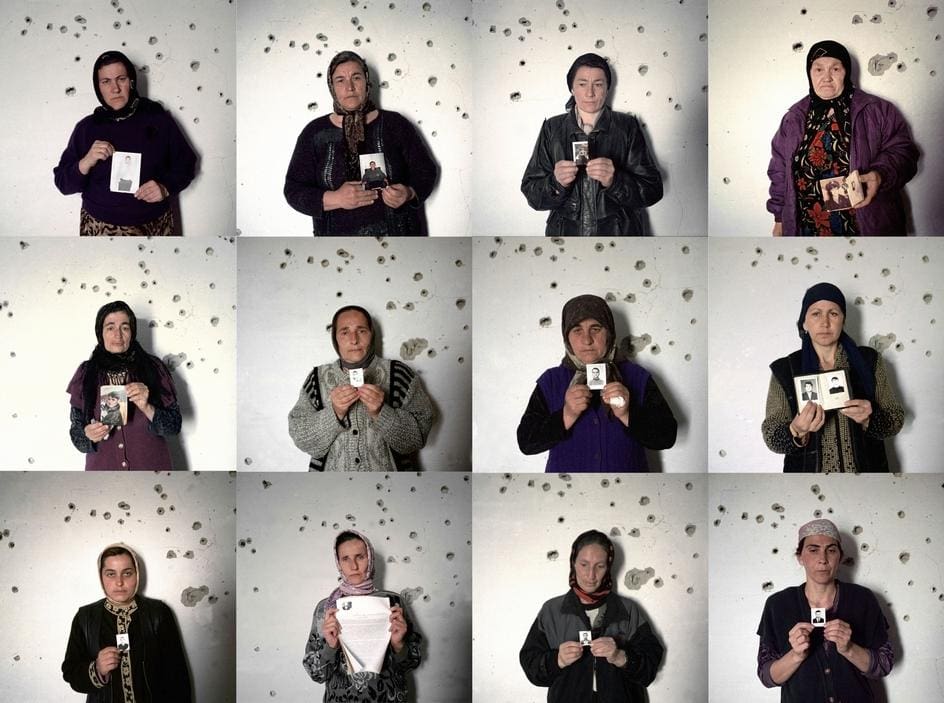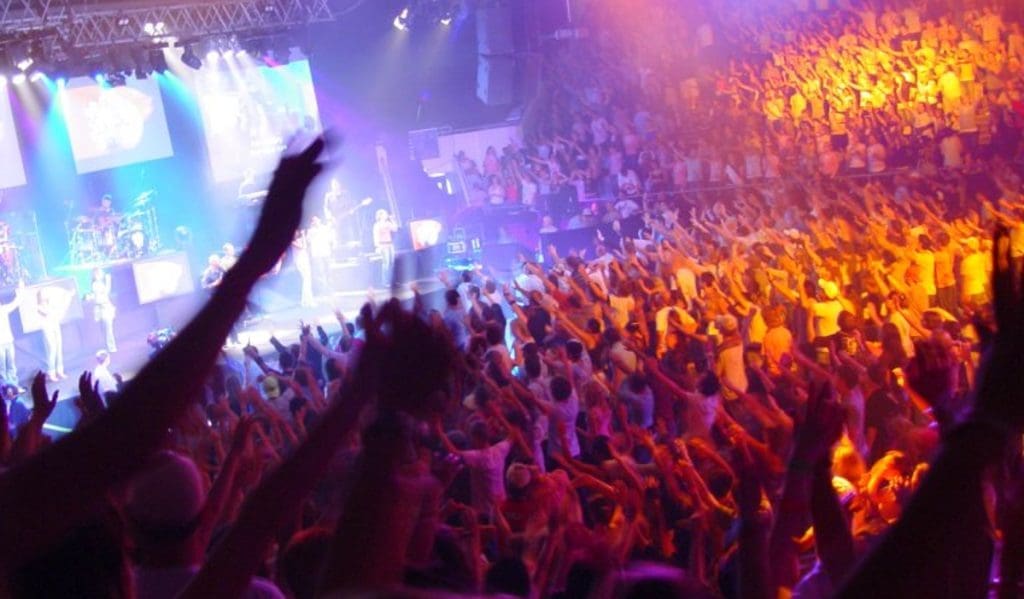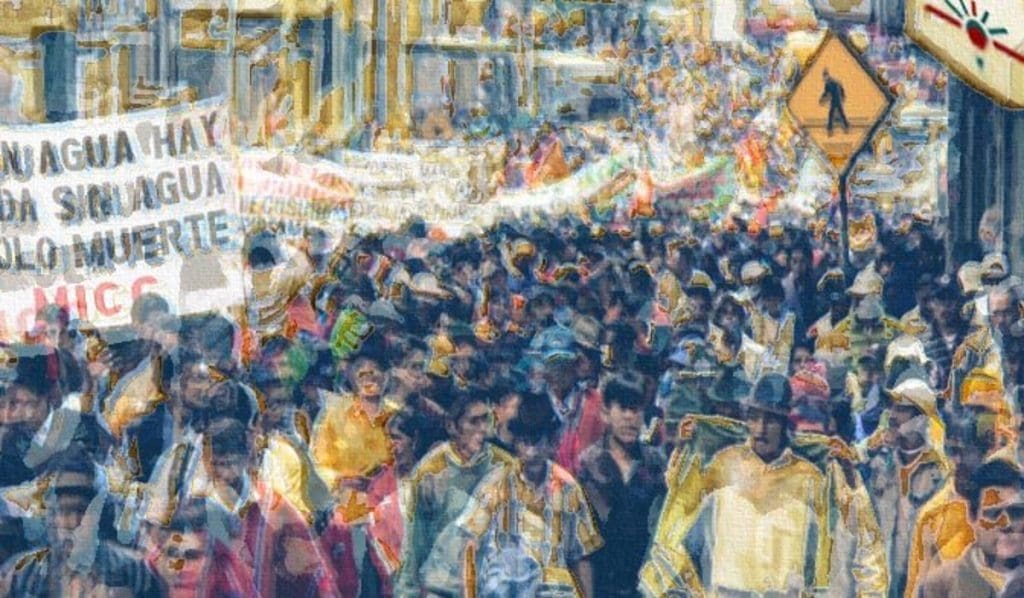Transcribed from the 24 March 2018 episode of This is Hell! Radio (Chicago) and printed with permission. Edited for space and readability. Listen to the whole interview:
When McDonald’s and Walmart are the two biggest private employers in the world, and the only bigger employers are the US and Chinese militaries, there is really a need for a transnational left. There was always a lot of talk about that in the labor movement, but the possibilities for organizing transnationally are greater now than ever before.
Chuck Mertz: Low-wage workers are rising around the world, realizing they have a shared experience that is spread globally, in what they all see as a more and more cruel world of precarity. Here to introduce us to a global movement for and by low-wage workers, historian Annelise Orleck is author of We Are All Fast-Food Workers Now: The Global Uprising Against Poverty. Annelise is a professor of history at Dartmouth college, and the author of five books on the history of US women, politics, immigration, and activism, including Storming Caesar’s Palace: How Black Mothers Fought Their Own War on Poverty.
Welcome to This is Hell!, Annelise.
Annelise Orleck: Thank you for having me on.
CM: We’ve had an ongoing conversation here on many of the topics that you raise in your book. Not only do we have this weekly four-hour radio show, but during the week we share an interview from our back catalog of over twenty years of shows. This week the conversation we had was one from 2003, fifteen years ago, with activist, sociologist, and feminist Hilary Wainwright, who at the time had just released her book Reclaim the State. That conversation took place about six months after the global protests against the Iraq war, and Hilary believed that there was hope for a resurgent, rejuvenated left in the US because the antiwar movement had reached out to people who the left had never connected with in the past, and, most salient to your writing, Hilary saw the possibility of what she called “more practical international connections with leftwing movements.”
You write, “In a time of globalization, as an ever-spreading flood of capital transforms our world, this book’s goal is to better understand how low-wage workers are starting to resist, think, and act globally as well as locally.”
How effective can low-wage workers’ thinking and acting globally be in bringing new energy to the US left? To you, is this the practical international connection that the US may be missing?
AO: It absolutely is. It’s a reciprocal relationship, because activists abroad are also taking ideas and energy from the US left. In a time when McDonald’s and Walmart are the two biggest private employers in the world, and the only bigger employers are the US and Chinese militaries, there is really a need for a transnational left. There was always a lot of talk about that in the labor movement, going back a century, but I think with social media and the rise of transnational corporations, the possibilities for organizing transnationally are greater than ever before.
CM: You write, “The activists I spoke with were all engaged in fighting the same things: poverty wages, the disappearance of public services, education, healthcare, water, the transformation of workers into independent contractors (and with that a loss of seniority, benefits, pensions), disrespect, sexual harassment and violence, mass evictions, and disregard of people’s rights.”
To what extent did these activists see this as a growing global uprising against late capitalism/neoliberalism—whatever you want to call the system that caused the poverty, the precarity, the abuse of your physical self as well as the abuse of your rights? Or did they view this first and foremost as a local fight?
AO: Both. Obviously, when there are workers organizing in the Philippines, there are very particular conditions there. In Cambodia, the same; in Bangladesh as well. South Africa, Mexico, the places that I looked at in this book—there are obviously very particular local conditions, as there are in the US. It’s different for workers organizing in Mississippi and New York and Chicago and LA.
That said, they definitely see themselves as part of a global struggle, and therefore they are working through global actions. There are annual housekeepers’ weeks of action, where hotel housekeepers are walking off the job and protesting and trying to make their conditions visible around the world, from the Maldives to Abuja, Nigeria, to Providence, Rhode Island. There are fast-food workers staging days of action: McDonald’s is in a hundred countries, and workers are walking off the job at the same time, making the same kinds of points, and broadcasting to each other via social media, via cellphone videos, via text and Twitter. So social media is a really important part of this, as is transnational capital.
Workers who work for a company like McDonald’s or Walmart understand that locally they have very little power, relatively speaking, but they put their bodies on the line and they block access to stores, they sit down in the middle of the streets to get their point across. And they understand that if workers are doing this all around the world, then even massive corporations have to sit up and take notice—and they have.
CM: How much is the massive size of a company like Walmart or McDonald’s not only the site of its power but at the same point, for activists, a site of its weakness? Because then you’ll have many more people, many more workers having a shared experience, and therefore they can share that experience and possibly mobilize together?
AO: One really vivid example of that was in the summer of 2015 (before Brazil took its shift to the right after the 2016 coup). In the summer of 2015, Brazilian senators were hearing from McDonald’s workers (Arcos Dorados there) all across the country about labor abuses. McDonald’s is the second-largest employer in Brazil, as it is in the world, so the Brazilian senate convened hearings to see how McDonald’s was affecting labor conditions and driving down wages around the world, inviting people from all over.
There was an amazing moment when one of the young men I profiled in this book, a Tampa McDonald’s worker named Bleu Rainer, was in Brazil, and he met a McDonald’s worker from Tokyo. They began to talk, and they realized, as Bleu said, “It’s my story exactly.” But the chilling moment came when they rolled up their sleeves. The guy from Japan rolled up his sleeves to show these burns on his arm, and Bleu rolled up his sleeve and he had burns on exactly the same places. And another McDonald’s worker, Benedict Murillo from Manila, rolled up his sleeves and he had burns in exactly the same places.
So they began to see themselves as part of a new global labor force—Murillo calls them McBrothers. They all had to turn around their orders in ninety seconds. They all had to reach across boiling oil to do it. They all face the same kinds of extended hours, where McDonald’s managers make them clock out and then clock back in to continue working, so they’re not paid overtime.
Because of these global meetings by workers for the same corporations all over the world, yeah, they’ve begun to see themselves as a global labor force, and that is empowering. It’s terrifying in some ways, but I think it’s more empowering.
We have gone backwards in what worker’s wages will buy, in safety conditions, in hours, in their right to unionize. We’ve really gone back a hundred years. The rights they’re fighting for now are rights that were fought for and won by labor a century ago.
CM: You write, “US activists, especially African-American and Latinx workers, reminded me that their battles had begun long before president Trump, and they plan to keep on struggling, as they had for centuries. Outside the US, facing crackdowns by the murderous Duterte regime in the Philippines as well as the brutal regimes of Sheikh Hasina in Bangladesh and Hun Sen in Cambodia put our inward-looking American grief in perspective.”
How much does that inward-looking perspective undermine US activism’s ability to make international connections?
AO: It does, and that’s why it’s important that workers have started to look abroad. When I interviewed workers who had met their counterparts from the Philippines, from Japan, from Mexico or other parts of the world, it enabled them to think about left activism in a much broader way.
And as I said, I think that activists of color here in the United States already had been. Right after the election, I interviewed this extraordinary young activist from Las Vegas, Stretch Sanders, a 21-year-old African-American (and the nephew of a Chicago Black Panther, so he had activism in his lineage). He basically told me, ‘Yeah, I’m upset, but people keep asking me if I’m scared. My brothers and sisters were already being shot down in the streets by police, my coworkers were already getting the knock on the door at dawn, and parents were being dragged away from their children and being sent places their children didn’t know where they were. So yeah, the election of Trump galvanizes me and makes me feel like I have to keep on working. But I was doing it before Trump’s election, and I’m just going to keep doing what I know I have to do.’
CM: As you mentioned earlier, the Tampa McDonald’s worker, Bleu Rainer, meets Benedict Murillo from Manila, he meets people from Khe Sanh and from the Philippines, he meets different McDonald’s workers from around the world. You point out that they call themselves McBrothers, and how they all have these stripes on their arms from the burn.
How much do you think worse working conditions and lower pay have led to whatever success neoliberalism has had, and any success late capitalism is having today? How dependent is the economy’s success (as it stands right now) on low wages and poor benefits?
AO: Our measures for a healthy economy are really out of whack. I heard a really cheery jobs report the other day; they were talking about how there are more people employed than ever before, isn’t this great, the economy is doing so well. The truth is, what I found in researching this book is that the measure of a healthy economy can no longer be the unemployment rate. The measure of a healthy economy is not whether people have jobs but whether they have to work two or three jobs just to pay their bills. Increasingly across the United States and around the world, that’s the case.
That’s one of the reasons that people have been willing to rise up. Again and again, people said to me, ‘We have nothing to lose.’ Bleu Rainer showed me a paycheck for two weeks’ work: $119. He said, ‘I have nothing to lose. I’ll go get another low-wage job.’ We have to transform these jobs into good jobs. But neoliberal capitalism has undermined the consensus of the mid-twentieth century all over the world that we have to have some regulations on capitalism, we have to have maximum hours and minimum wage and safety standards regulations, and a broader distribution of the profits. We’ve now reached the point where the distribution of profits is so out of whack that just a handful of people control as much wealth as the bottom half of the human race.
That’s not viable, economically. You could find some economists who I’m sure would argue with me, and I’m not an economist. But it seems like pure common sense, and I think the workers understand that, and it’s part of what’s given them the courage to rise up.
CM: You write about the global precariat, which has created a new kind of worker relationship with labor that leads to one of the things you saw activists resisting around the world, that is, the “transformation of workers into independent contractors, and with that a loss of seniority, benefits, and pensions. The precariat can also expect to do unremunerated work that’s necessary for job success or even survival.”
When talking to activists opposing low wages, how much do they express an understanding that their way of work is new and different from the way work used to be, back when there was more security, better pay, and benefits? How much do they see themselves as the precariat?”
AO: They absolutely do. In the United States last Labor Day, there were all these reports about how twenty-somethings in the United States all have jobs on the side, “side gigs” is what they called them. It was presented as this cheerful expression of creativity. But the fact remains that the reason they do this is because they are unable to live on their work.
When I talked to people in the Philippines, where half the labor force is under thirty, they very much understood the problem as something new, because the Philippines, as a long-time American colony, has labor laws based on US New Deal labor laws. They understand from their parents’ generation. They see it. Before the age of Export Processing Zones, where labor laws don’t apply, and before the age of contract employment, people were able to make a living. They were able to make a living in their own neighborhoods. It’s not that things were ever so easy in a place like Manila, but there has been a decline.
That’s one of the themes of this book. It starts with the hundredth anniversary of the Triangle fire, the factory fire in New York in 1911 that changed the way American government relates to the workplace, bringing safety regulations and other kinds of government regulations. In 2011, Kalpona Akter, the leader of the Bangladesh garment workers, walked on stage at the hundredth anniversary commemoration in New York, and said that in Bangladesh it’s not 2011, it’s 1911. That really struck me.
And that’s not true just in Bangladesh. It’s true everywhere, that we have gone backwards in what worker’s wages will buy, in safety conditions, in hours, in their right to unionize. We’ve really gone back a hundred years. The rights they’re fighting for now are rights that were fought for and won by labor a century ago.
People are paid so little they are hungry; they are paid so little that some are homeless. And still when they meet with employers, even though all that is the case, the first item on their agenda is respect. They want to be talked to like human beings. They want to be treated with dignity.
CM: We’ve discussed with many guests that we can’t consumer-choice our way out of, for example, climate change. How much can our buying decisions, our consumer choice have a direct or even indirect effect on low-wage workers?
AO: I want to give you the example of Bangladesh. In 2013 there was the worst disaster in the history of the garment industry, when the Rana Plaza factory complex buildings collapsed in Dhaka, killing 1,200 and wounding another 2,500 grievously. This is ten times the death toll of Triangle, and like Triangle, it’s finally gotten across to the world what activists like Kalpona Akter had been trying to say for years: people put their lives on the line every day to go to work.
In the aftermath of that horror, the work Akter did, with groups like United Students Against Sweatshops and the Clean Clothes Campaign as well as with unions and workers’ groups, was to let the world know that we need to put pressure at the top of the supply chain. It isn’t going to matter much if you just put pressure on the guy who owns this little garment factory. But if you put pressure on H&M and Zara and Walmart, they begin to feel that pressure and respond.
They were able to create a pioneering agreement called the Bangladesh Building and Fire Safety Accord. They got 225 global brands to sign a legally binding agreement that basically said: ‘We will pay for inspections of our factories where our clothing is made; we will allow workers groups and unions to pick the inspectors, we won’t insist that we pick them; we will pay to remediate the safety violations they find; and if we don’t, we will allow ourselves to be sued in our own countries.’
In terms of death toll, we went from an average of two hundred workers a year dying in Bangladesh making clothes to none in 2017. That’s one example of a way a consumer-corporate-union accord, everyone working together, can dramatically improve the lives of workers. It’s not all in the hands of consumers by any stretch. But consumers wield a lot of economic power, and they wield power economically that low-wage workers often don’t.
CM: You write, “In Vermont, a 24-year-old dairy worker from Chiapas rolls his pants up, revealing knees bruised and painful from long nights of milking and mucking out stalls. In Boston, London, Manila, and the Maldives, hotel housekeepers struggle to stand after scrubbing twenty bathrooms on their knees—their scarred limbs are a bane and a bond—and bear a diagonal white scar on their foreheads. Some were beaten by angry foremen who thought they were working too slowly. Others had their skulls smashed by rocks, punishment for organizing. Three young men in their twenties roll their sleeves up; their arms are scarred.”
How often did you hear concerns from those people working in the low-wage worker resistance movement about access to and cost of healthcare? To what degree was healthcare a priority for low-wage workers in the resistance movement?
AO: Healthcare is a tremendous priority. People are fighting for access to clean water, healthcare, education, electricity. One of the things that’s happened is privatization of these services in countries where they used to be public. A group of garment workers I interviewed in Cambodia, the United Sisterhood Alliance, have a band called Messenger Band, and they go around and play their anthems and tell the stories of workers and sing about them. One of the songs they sing is called “Suffer from Privatization,” about how Worldbank loans and International Monetary Fund loans to Cambodia were contingent on privatizing basic services. So workers no longer do have access to healthcare.
One of the things this group in Cambodia did was have consciousness-raising groups all over the country; they literally teach herbal medicine and distribute herbs to help workers take care of themselves. They give lessons about the reproductive system and how to avoid getting pregnant. They have had to go around the healthcare system because they’ve lost access to healthcare as a result of privatization.
And healthcare is obviously an enormous issue in the United States, as the Affordable Care Act (which was by no means perfect) has begun to be scaled back. There are doctors talking to their low-income, low-wage worker patients about ways to try to get healthcare, or to try to get desperately-needed medications.
Healthcare is a huge issue everywhere, as is sexual violence and sexual harassment. The majority of workers organizing, like the majority of low-wage workers in the world, are women of color, and the issue of sexual violence is one that has galvanized women in every country that I went to and every city that I went to.
CM: You point out that housekeepers suffer daily pain and long term injury more frequently than any other profession—which I would never have thought. How much does the invisibility of low-wage hotel workers undermine potential sympathy for their cause? How has neoliberalism made low-wage workers invisible, and how much is that the goal of neoliberalism in order to avoid sympathy for their plight and to keep their wages low?
AO: That is absolutely a strategy of neoliberalism. That’s also why there are these complicated supply chains. Nobody knows where anything is made, and workers, half the time, don’t even know who their employers are. They know who their supervisors are, who are directly over them, but they don’t know who is making the profit off their labor.
So invisibility is an issue. This wonderful organizer, Massimo Frattini, who was a hotel worker in Milan before he started organizing global actions (he now works out of Geneva), said, ‘You know, we walk out of a hotel room in the morning, and people must think a fairy cleans their room when they’re gone so they come back to this beautiful, perfectly clean room. The first step for us has been to make people understand that it’s an actual human being who cleans that room.’
One of the creative actions that I always love to talk about took place in Harvard Square, when Harvard was refusing to negotiate with workers at the Double Tree there who were trying to unionize. They brought a hotel bed out into Harvard Square and had a bed-making demonstration, where they said to passersby—students, faculty, other employees of the college, random Cambridge residents—“Look, I’m going to show you how to make the bed the way we have to do ten, twenty, thirty times a day, and I want you to see how exhausting it is.” And once people realized, physically, the uncomfortable angles and the ways you have to stretch your body, and the heavy mattress that you have to lift, and everything you have to do to make those beds perfectly, as hotel housekeepers do, they began to understand and try to imagine what it would be like to do that twenty or twenty-five times a day. Ultimately, Harvard did settle, and the Double Tree was unionized.
In 2012, when fast-food workers and Walmart workers started this idea that we would more than double the federal minimum wage in a few years, it was just delusional, it was crazy, nobody believed it was possible. Now, there are workers having given themselves $61.5 billion in raises in that time, and six out of ten Americans support the fifteen dollar wage, in red states as well as blue.
The Coalition of Imokalee Workers, who pick tomatoes in Florida, revolutionized their agricultural workplaces by having truth tours: they went and started protesting in front of fast-food restaurants all across the country, and in front of Walmart, and Trader Joe’s, and they talked about the conditions in their fields, because people don’t think about it. You just see a beautiful tomato. They’ve had a lot of success. Like the Bangladesh safety accord, a lot of these companies are signing and saying, ‘Okay, we’ll pay a penny more a pound if that money is used to raise workers’ wages and have safety inspections and litigate sexual harassment claims.’
Becoming visible and using that visibility to put pressure on corporations is really crucial.
CM: How much did you hear low-wage workers complaining about cruelty? How much is cruelty a driving force of the new labor relationship experienced by the precariat?
AO: The cruelty is intense. Everywhere I went, I heard the word ‘respect.’ The fast-food workers’ alliance in the Philippines is called the RESPECT Fast-Food Workers Alliance. The Walmart workers’ organization is called OUR Walmart: Organization United for Respect at Walmart.
One of the Walmart activists, Girshriela Greene, started an organization for pregnant workers. Talk about cruelty: Walmart had no accommodations for pregnant workers. You had people being told to climb a ladder and bring down a fifty- or hundred-pound television; if they couldn’t, they’d lose their jobs. There were people miscarrying in stores, in addition to all kinds of other injuries. And they talked about wanting respect. People were paid so little they were hungry; they were paid so little that some people were homeless. I interviewed a woman who was employed, and she was living in her car for two years because she was paid so little. And Girshriela said they were meeting with Walmart employers, and even though all that was the case, the first item on their agenda was respect. They wanted to be talked to like human beings. They wanted to be treated with dignity.
There are Cambodian garment workers, organizers: I found the same diagonal scar on their foreheads, where their heads had been smashed with rocks. The pushback against these workers is tremendous. It’s both against organizing and just abusing workers on the job. It’s just recently come out that ten percent of workers at Disneyland are homeless. There was a hunger strike by the Neverland swimming pool in Anaheim a few years ago, and one of the workers said, ‘If they could whip us publicly, they would.’
So this issue of cruelty is tremendous. Neoliberalism and its idea that employers have no responsibility to workers—none—and that the only function of government is to maximize shareholder value and maximize profits—all of that sets the stage for the situation we’re in.
CM: You write, “For low-wage workers, their protests are not your grandmother’s protest. Repeated one-day flash strikes have largely replaced months-long sieges that often hurt workers more than management. Activists still march, chant, and go door-to-door, but they also use social media, perform street theater, and engage in pop culture civil disobedience actions. They hold mock trials of Ronald McDonald; singing, dancing flashmobs invade fast-food restaurants and shopping malls, posting online about everything they do.”
How effective have these tactics been? And aren’t months-long sieges—even days-long, when you consider the West Virginia teachers strike—still the best way to get anything done? Or has life become so precarious, especially with the undermining of unions and labor organizing, that a long strike is simply no longer practical?
AO: They do happen. The communications workers did it, and yes, the wildcat strike in West Virginia was effective. We’re starting to see that again. But at a moment when there is such a small percentage of workers in labor unions, these flashmobs, these new kinds of actions have galvanized workers across many different industries, and around the world, in ways that would take a lot longer if your goal was first and foremost to draw people into unions.
These other kinds of movements and actions have been really effective at changing public perception of the labor movement. It’s gotten a lot more sympathy. As one young choreographer of these labor protests who I talked to in the Philippines said, ‘Manila is so crowded. It’s one of the most densely-populated cities in the world. It takes forever to get anywhere. If we were just blocking traffic, people would be pissed off. But if we start entertaining them while we’re blocking traffic, we start to notice people clapping, singing along, opening their windows to listen. Then we can get our message across in a way that people are more sympathetic to.’
And views have changed. In 2012, when the fast-food workers and Walmart workers started this idea that we would more than double the federal minimum wage, from $7.25 to $15 in a few years, it was just delusional, it was crazy, nobody believed it was possible. Now, there are workers having given themselves $61.5 billion in raises in that time, through local action, through private corporate action, through the big state decisions in New York and in California, and six out of ten Americans support the fifteen dollar wage, in red states as well as blue. So there is a lot that has been done through this new strategy of organizing workers in all kinds of ways, including into unions.
CM: To what extent do we simply have to pay more for stuff? How much would that solve the problems low-wage workers are fighting?
AO: Studies have shown that prices don’t go up very much when wages go up. That’s a lie. There’s plenty of extra money. It’s going into share buybacks, which is why the stock market has gone crazy for so many years. The majority of Americans don’t own shares in the stock market, and for those who do, the bottom line is: you want a reasonable, healthy growth. I don’t think that we’re going to see big price increases (and we haven’t seen them in cities like Seattle and Los Angeles which have the fifteen dollar wage).
If we did something like banning share buybacks or at least regulating share buybacks by corporations, we’d find that raising the wages is very much possible. In fact, the economy would be healthier, because more people would have more money to spend.
CM: Annelise, it’s been a pleasure. Thank you so much for being on our show.
AO: Thank you so much for having me.





